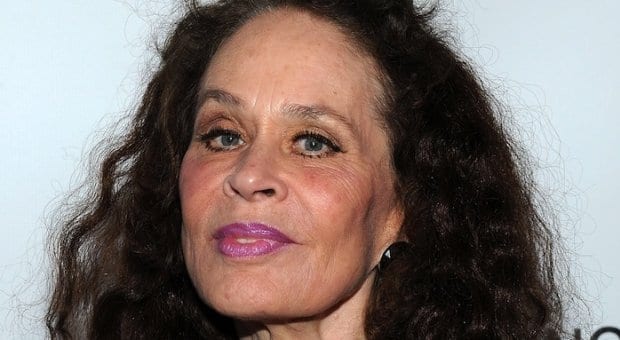Famed cult actress Karen Black, beloved by gay audiences for both her campy and dramatic performances, has died of cancer at the age of 74.
Black starred in more than 100 films over the course of her career and worked alongside Hollywood royalty frequently in the 1970s and ’80s, including Cher, Jack Nicholson, Bette Davis, Gloria Swanson, Robert Redford, Alfred Hitchcock and Robert Altman. Black played the manic pregnant waitress Rayette in Five Easy Pieces, a performance that scored her an Oscar nomination and Golden Globe for Best Actress in 1971.
An atypical beauty who rose to fame because of her fiery personality, Black became a household name in the mid-1970s thanks to a slew of high-profile roles, including brassy stewardess Nancy Pryor in the disaster hit Airport 1975, the adulterous Myrtle in The Great Gatsby (which scored her another Golden Globe win), the wide-eyed aspiring actress with a dark past Faye Greener in John Schlesinger’s Hollywood melodrama Day of the Locust (which garnered her an additional Globe nomination) and country music queen Connie White in the classic southern drama Nashville.
Black also made a name for herself as a sought-after genre-movie scream queen. She appeared in Burnt Offerings as a woman possessed by the spirit of a vicious old woman and most notably in the cult classic TV movie Trilogy of Terror.
In 1982 Black appeared in the Robert Altman film adaptation of the Broadway play she had appeared in, Come Back to the Five and Dime, Jimmy Dean, Jimmy Dean alongside Cher, Kathy Bates and Sandy Dennis. In it she played Joanne, a trans woman with a secret who pops in on a group of James Dean admirers who occupy a small-town café. Black is widely considered the first major Hollywood celebrity to play a transgender character in a mainstream film.
Black spent the later part of her career appearing in countless independent films, including gay director Todd Stephens’s Stevie Nicks homage Gypsy 83 and Steve Balderson’s women’s prison drama Stuck! She also toured constantly with her one-woman musical revue, which made appearances at many gay theatre events and venues.
When it comes to her appeal to gay audiences, Black summed it up perfectly in an interview with Guy Spy last April: “It has something to do with pain. I’ve had a hard time, and I’ve worked hard. Gay men relate to that. They get bullied. They identify with me; they know I do my very, very best. They do the best they can with what they have, the skill, the dedication, the colour and the life and the form and the language. It’s hard to put your finger on it because it’s like a poem.”

 Why you can trust Xtra
Why you can trust Xtra


